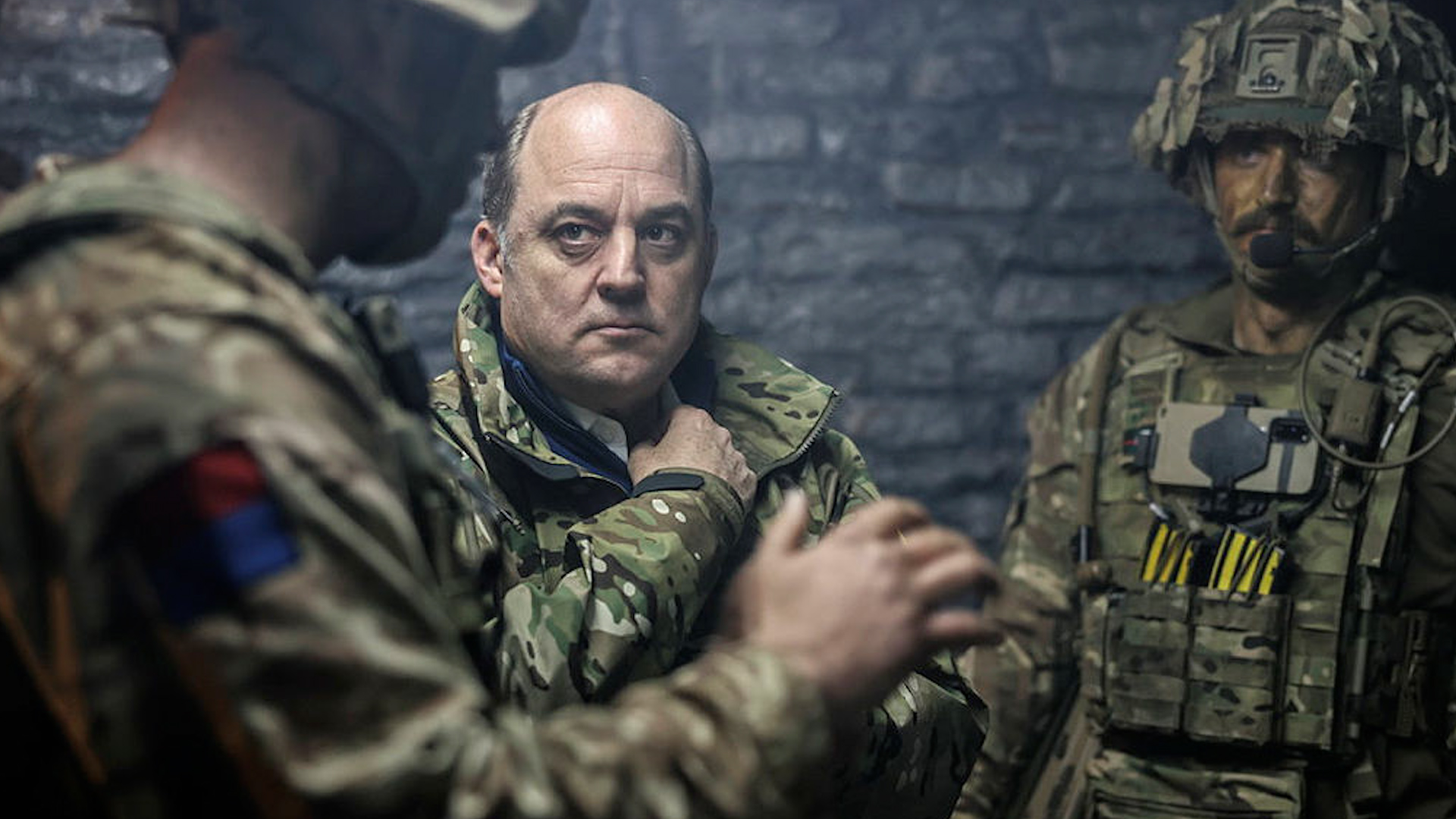
Wallace: Why veterans make good politicians and what Ukraine must do to win

Ben Wallace has been explaining why he thinks junior Armed Forces veterans can do well in politics and why his time serving in the British Army helped him predict Russia's invasion into Ukraine.
Speaking on The Rest Is Politics podcast hosted by Alastair Campbell and Rory Stewart, the former Conservative MP, who was Defence Secretary from 2019 to 2023, discusses Britain's big mistake in Ukraine and what President Zelensky needs to do to win.
By his own admission, ex-officer Mr Wallace says: "I was never a high flyer in the Army. I had a great time, I loved the time with the Scots Guards."
- Russia claims drone destroyed Challenger 2 tank during Ukraine's Kursk counter-offensive
- Two Ukrainian paras capture 14 Russian troops in grenade assault on trench
- Russia suffering 102 casualties for every square km as losses continue to mount
However, he believes his time in uniform and leading troops is what equipped him with the skills necessary to govern.
When asked by the former Labour spin doctor Alastair Campbell "Do you think soldiers make good politicians?", Mr Wallace said he thought junior soldiers, such as captains and majors, do.
"But," he added, "if you start going higher up [the ranks], these guys have been in 20 or 30 years and that is just quite a hard transition."
Mr Campbell spoke about his own brother's transition from the Armed Forces, saying that even after leaving the military he "never quite escaped, in his own mind, the fact of having been in the military and I found with a lot of military people, it utterly defines their life".
He added that he is surprised how little some Members of Parliament with military experience talk about their service.
Mr Wallace explained why it might be difficult for some to transition back into civilian life.
"It is their whole life, they've joined at 16... and for many, it took them away from very dysfunctional and difficult upbringings," he said.
"It gave them, in their mind, everything. So of course it is going to be part of their life."
And to be good at politics, Mr Wallace believes: "You need to be interested in people and, if you're not, you shouldn't be a leader and you shouldn't be in politics.
"And that's what the Army teaches you, is that you lead not by saying 'I've got rank', because in the Scots Guards, if you did that, you'd get duffed up in the middle of the night."
Mr Wallace went on to explain that the military teaches you how to "read the people" and how to read the room and how that helped him correctly call Russia's invasion into Ukraine, when other senior officials still believed Vladimir Putin would not.
He said it was pretty obvious from the April before that a Russian invasion was on the cards after he read an article Mr Putin wrote on Ukraine's historical links to Russia, which he said "read like a Mein Kampf novel".
"You add that to the rhetoric and my judgement was [Putin's] gonna do it."
"I can't talk about intelligence etc, but there were people within the establishment who didn't believe it."
At the same time, "Russia was attacking us in cyber" on a daily basis, he went on to say.
Mr Wallace also believes Britain should have done more to shut down the "dirty money flows" from Russian oligarchs much earlier and says "the Treasury blocked every effort" to clamp it down.
The former defence secretary says Britain could have done more, noting: "We've had two years, we could've been ramping up our production, sending more equipment to Ukraine."
Mr Wallace also questioned why President Volodymyr Zelensky has not allowed more of Ukraine's younger generation to be conscripted into the military and queried why he had not mobilised more.
Rather than "preserve" its 18 to 28-year-old men and women, Ukraine should have "mobilised, asked Europe to train them, because that's not a hard ask", he said.
"If you ask them to train people, that is not difficult, and they go back to their houses, they put their helmets under their beds, they put their uniforms in the cupboard, they go back to work, and you can then you call them up.
"And that hasn't happened," Mr Wallace added.









